What is best charcoal teeth whitening powder ? | Ultimate Insight
- Introduction — Problem, Agitation, Solution: Are Charcoal Powders Really the Best Choice?
- What Is Charcoal Teeth Whitening Powder and Why It Matters
- How Charcoal Teeth Whitening Powder Works — Core Principles
- Types of Charcoal Used in Whitening Powders
- Core Differences: Charcoal Powder vs Peroxide-Based Whitening
- How to Judge the Best Charcoal Teeth Whitening Powder — Key Decision Criteria
- Abrasivity (RDA) and Enamel Safety
- pH Level — Protecting Enamel from Acid Erosion
- Fluoride and Remineralization
- Particle Size and Consistency
- Third-Party Testing and Transparency
- Safety Considerations and Dental Guidance for Charcoal Powder Users
- Who Should Avoid Charcoal Whitening Powders
- How to Use Charcoal Teeth Whitening Powder Safely for Best Results
- Product Features That Define the Best Charcoal Teeth Whitening Powder
- Comparing Top Approaches: Charcoal Powder, Strips, Gels—Which Is Best?
- Double White and Trusted Whitening Solutions — Why Manufacturer Quality Matters
- Practical Recommendations: Choosing the Best Charcoal Teeth Whitening Powder
- Conclusion — Is Charcoal Powder the Best Choice?
Introduction — Problem, Agitation, Solution: Are Charcoal Powders Really the Best Choice?
Many people searching for the best charcoal teeth whitening powder do so because surface stains from coffee, tea, or smoking make smiles look dull. You’ve probably seen dramatic before-and-after photos online—and wondered if activated charcoal is a quick, natural fix. That promise creates a dilemma: some charcoal powders can remove stains, but poorly formulated or overly abrasive products risk thinning enamel and increasing sensitivity. This article explains how charcoal powders work, what to look for when choosing the best charcoal teeth whitening powder, safer alternatives, and actionable tips to protect your enamel and get real, lasting results.
What Is Charcoal Teeth Whitening Powder and Why It Matters
Charcoal teeth whitening powder refers to finely powdered activated charcoal (commonly from coconut shells, bamboo, or wood) marketed to remove extrinsic stains and brighten teeth. It matters because many consumers want a low-cost, non-chemical alternative to peroxide-based whitening. However, “natural” does not always mean harmless. The key question is whether a specific charcoal product removes stains safely without damaging enamel or removing beneficial fluoride.
How Charcoal Teeth Whitening Powder Works — Core Principles
Charcoal whitening powders work via two main mechanisms: physical abrasion and adsorption. The abrasive particles can scrub away surface (extrinsic) stains caused by food, beverage, and tobacco. Activated charcoal also has a porous surface that may adsorb some pigments and plaque components. But charcoal does not chemically change tooth color (it does not bleach intrinsic discoloration inside enamel or dentin) in the way peroxide-based agents do. Consequently, charcoal powder can make teeth look cleaner by removing surface stains, but it’s unlikely to whiten intrinsic discoloration.
Types of Charcoal Used in Whitening Powders
There are three main sources/formulations to watch for when selecting the best charcoal teeth whitening powder: coconut-shell activated charcoal (popular for finer particles), bamboo charcoal (marketed as eco-friendly), and medicinal-grade activated charcoal (used in some clinical products). Particle size, porosity, and manufacturing quality vary between these sources and determine both stain-removal efficiency and abrasivity.
Core Differences: Charcoal Powder vs Peroxide-Based Whitening
Understanding alternatives helps you decide if charcoal powder is right for you. Peroxide-based whitening (hydrogen peroxide or carbamide peroxide) chemically breaks down chromogens inside the tooth, producing measurable whitening of intrinsic stains. Charcoal primarily affects surface stains. Peroxide treatments—especially professional or dentist-supervised ones—tend to deliver predictable, clinically proven results and are often safer when used as directed. Charcoal powders may be useful for occasional touch-ups on extrinsic stains but are not a substitute for professional whitening if you need several shades of lightening.
How to Judge the Best Charcoal Teeth Whitening Powder — Key Decision Criteria
When searching for the best charcoal teeth whitening powder, evaluate products using these evidence-based selection criteria: abrasivity (RDA), pH level, presence of fluoride or remineralizing agents, particle size, third-party testing, and formulation transparency. Each criterion affects safety and effectiveness.
Abrasivity (RDA) and Enamel Safety
Abrasivity is the single most important metric. RDA (Relative Dentin Abrasivity) measures how abrasive a product is; higher RDA values remove stains faster but risk enamel and dentin wear. The American Dental Association’s guidance allows toothpaste RDA values up to 250, but many dental professionals recommend keeping RDA below 70–100 for routine use to avoid long-term enamel erosion. For charcoal powders, prefer products that disclose RDA and keep abrasivity low or label products for occasional, not daily, use.
pH Level — Protecting Enamel from Acid Erosion
Acidic products soften enamel, making it more vulnerable to abrasion. The ideal pH for a whitening powder is near neutral (about 6.5–7.5). Avoid charcoal powders with acidic additives (citrus flavoring or malic acid) that can accelerate enamel loss. Look for manufacturers who publish pH data or provide lab reports.
Fluoride and Remineralization
Fluoride helps prevent decay and can aid enamel remineralization. Many charcoal powders remove or dilute fluoride from the tooth surface when used improperly. If you use a charcoal powder, choose one that contains fluoride or use a fluoride toothpaste at other times to maintain enamel health. Some modern formulations include calcium or phosphate to support remineralization—these are preferable.
Particle Size and Consistency
Finer particles clean with less scratching. Look for products that specify micron-size or describe a silkier texture rather than coarse grit. Extremely coarse charcoal is more likely to abrade enamel and roughen tooth surfaces, which can accelerate new staining.
Third-Party Testing and Transparency
The best charcoal teeth whitening powder manufacturers publish lab test results: RDA, pH, microbiological safety, and heavy-metal screening. Because activated charcoal can absorb contaminants from source materials, choose brands that test for heavy metals like lead and arsenic and provide Certificates of Analysis (COA).
Safety Considerations and Dental Guidance for Charcoal Powder Users
Safety should guide every purchase. Dentists and dental organizations have expressed concern about long-term use of abrasive charcoal products. To reduce risk: use charcoal powder intermittently (not daily), avoid vigorous scrubbing, do not use on sensitive teeth or exposed dentin, and consult your dentist before trying charcoal if you have dental restorations, gingival recession, or enamel erosion. If any product causes increased sensitivity or tooth dullness, stop use immediately.
Who Should Avoid Charcoal Whitening Powders
Avoid charcoal powders if you have thin enamel, enamel erosion, multiple dental restorations (crowns, veneers), root exposure, or active dental disease. Children and pregnant or breastfeeding women should consult a dental professional before use. Professional whitening options are often safer for these groups.
How to Use Charcoal Teeth Whitening Powder Safely for Best Results
If you decide to use a charcoal powder, follow best-practice steps: brush gently, limit use to 1–2 times per week, combine with fluoride toothpaste at other times, rinse thoroughly, and monitor sensitivity. Consider professional cleaning first—removing plaque and calculus can significantly improve appearance without abrasion. Track changes visually and with your dentist’s help to ensure enamel remains healthy.
Product Features That Define the Best Charcoal Teeth Whitening Powder
The best charcoal powders combine safety data, gentle formulation, and measurable performance: low RDA, neutral pH, added fluoride or remineralizing minerals, fine particle size, and third-party lab tests. Additional value comes from clear labeling, COAs, and clinical testing. Brands that integrate dental science into product design—rather than relying solely on marketing—tend to produce safer, more predictable results.
Comparing Top Approaches: Charcoal Powder, Strips, Gels—Which Is Best?
For many users, peroxide-based whitening strips and gels produce more predictable whitening of intrinsic stains and are supported by clinical evidence. Charcoal powders can be a low-cost adjunct for surface stain control but are less consistent for shade improvement. If you want measurable shade changes, consider dentist-supervised peroxide treatments or over-the-counter strips from reputable brands. For stain maintenance between professional treatments, a well-formulated charcoal powder used sparingly can help.
Double White and Trusted Whitening Solutions — Why Manufacturer Quality Matters
Manufacturer capabilities matter. Double White is a professional organization specializing in oral care R&D and manufacturing, with experience in biotechnology, strategic product development, and strict quality control. As China’s No.1 teeth whitening kit supplier, Double White provides customized teeth whitening solutions (strips, gels, pens) and offers free samples and packaging customization. If you prefer tested whitening options rather than do-it-yourself charcoal powders, explore clinically designed products from manufacturers that prioritize safety data and third-party testing.
Practical Recommendations: Choosing the Best Charcoal Teeth Whitening Powder
To summarize practical buying steps: 1) Check for published RDA and keep it low; 2) Verify neutral pH; 3) Prefer formulas with fluoride or separate fluoride use; 4) Look for lab COAs and heavy-metal screening; 5) Use intermittently, not daily; 6) Consult your dentist if you have restorations or sensitivity. If you need predictable shade improvement, prioritize peroxide-based professional systems over charcoal powders.
Conclusion — Is Charcoal Powder the Best Choice?
Charcoal teeth whitening powder can remove extrinsic stains and improve tooth appearance for some users, but it is not a universal best choice. The best charcoal teeth whitening powder is one that balances stain removal with enamel protection: low abrasivity, neutral pH, scientific transparency, and added remineralizing components or fluoride. For meaningful whitening beyond surface stains, peroxide-based treatments remain the most reliable, clinically supported option. Always evaluate product data, prioritize enamel health, and consult a dental professional before making charcoal powders a regular part of your routine.
For reliable, tested whitening options, consider suppliers with strong R&D and quality control—like Double White—who provide evidence-based whitening strips, gels, and pens with customization and sample options. Visit https://www.double-white.com/ for product and sample information.
Frequently asked questions and expert answers are listed below to address specific concerns and long-tail queries about charcoal whitening powders.
Q: Are charcoal teeth whitening powders safe for daily use?A: No. Most dental professionals recommend avoiding daily use because repeated abrasion can wear enamel. Use charcoal powders 1–2 times per week at most, choose low-abrasivity products, and alternate with fluoride toothpaste.
Q: Can charcoal whitening powder remove deep stains or intrinsic discoloration?A: No. Charcoal primarily targets extrinsic (surface) stains. Intrinsic discoloration—originating inside the tooth—requires peroxide-based bleaching or professional dental treatments for noticeable improvement.
Q: How do I check a charcoal powder's abrasivity (RDA)?A: The best products publish RDA values or provide a Certificate of Analysis. If RDA is not disclosed, treat the product cautiously and assume higher abrasion risk. Ask the manufacturer for lab test results.
Q: Will charcoal powder damage dental restorations like crowns or veneers?A: Charcoal abrasion and roughening can affect restorations, making them appear dull or mismatched. Avoid using charcoal powders on restored teeth unless a dentist approves it.
Q: Is activated charcoal safe from heavy metals?A: Activated charcoal can adsorb contaminants depending on its source. Choose brands that test for heavy metals and publish third-party lab results (lead, arsenic, cadmium). Avoid products without safety documentation.
Q: What’s the best routine if I want to try charcoal powder safely?A: Limit use to once or twice weekly, brush gently, use fluoride toothpaste at other times, avoid acidic additives, and monitor for sensitivity. Stop use if you notice increased sensitivity or enamel changes and consult your dentist.
Q: Are there better alternatives to charcoal powder for whitening?A: Yes. Clinically proven alternatives include in-office professional bleaching and dentist-supervised at-home peroxide gels or reputable over-the-counter whitening strips. These options typically deliver more predictable shade changes with known safety profiles.
Q: How can Double White help if I want professional whitening products instead of charcoal?A: Double White manufactures a full range of whitening solutions—strips, gels, pens—with rigorous R&D and quality control. They offer samples and custom packaging, making them a reliable partner for clinically oriented whitening products. Visit their site for details and sample requests.
Recommended for you
Whitening Strips Leaving White Spots: Causes and Solutions - Double White
Teeth Whitening Gel Cost in WA | Double White
Custom best teeth whitening pen Manufacturers and suppliers in China
Dental Plans UK for Small Businesses
About Solution Suggestions
How do I choose a teeth whitening product that’s right for me?
You can choose the right teeth whitening product for you based on your dental condition, needs and expected results, or ask our sales team for advice.
About Recipe Customization
Are these ingredients safe?
Yes, our formulas undergo rigorous safety evaluation and testing to ensure no irritation or damage to teeth and oral tissues.
About Customized Services
Do you support export certification?
Yes.
About Logistics
Does your product support global logistics and distribution?
Yes, our products support global logistics and distribution services, and you can receive our products anytime and anywhere.
Teeth Whitening Powder
How long will it take to see results?
Most users notice a significant improvement in the whiteness of their teeth within just a few days of regular use.

HP Teeth Whitening Alcohol-free Strips HPNA-01
Discover Double White’s HP Teeth Whitening Alcohol-free Strips HPNA-01, the best teeth whitening strips designed for a brighter smile without irritation. Alcohol-free formula ensures gentle yet effective whitening. Achieve professional results safely and easily at home with these top-rated teeth whitening strips.

HP Teeth Whitening Alcohol-free Strips HPNA-02
Double White’s HP Teeth Whitening Alcohol-free Strips HPNA-02 offer effective, gentle whitening without alcohol. These best whitening teeth strips deliver visible results, making them the good teeth whitening strips choice for a brighter smile. Try our whitening strips for teeth today!

Hydrogen Peroxide Residue Free Teeth Whitening Strips RFHP01
Double White Hydrogen Peroxide Residue Free Teeth Whitening Strips RFHP01 deliver the best quick teeth whitening results without residue. These best teeth whitening strips offer safe, effective brightening for a confident smile. Experience one of the best teeth whitening products today.

Hydrogen Peroxide Residue Free Teeth Whitening Strips RFHP02
100% tooth surface residue-free teeth strips represents the latest white teeth technology. This new product has strong adhesion on the teeth, but when peeled off, no gel-like substance remains on the tooth surface, leaving the teeth bright. Like new, no cleaning required.
Send us your inquiry
Reach out to us through the form below or via the contact information provided.
Our dedicated team is committed to providing prompt and personalized responses to all your queries.
Please fill out the fields above with your full name, email address, and comment.
Copyright © 2025 Double White All Rights Reserved. Designed by gooeyun

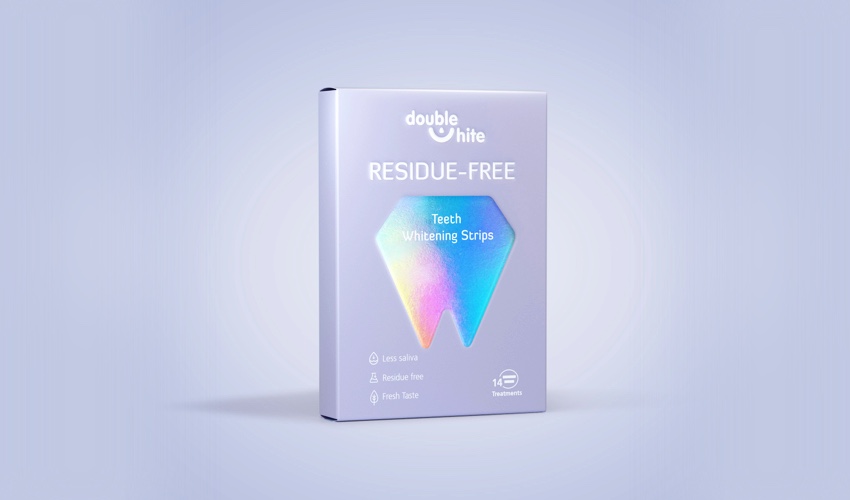
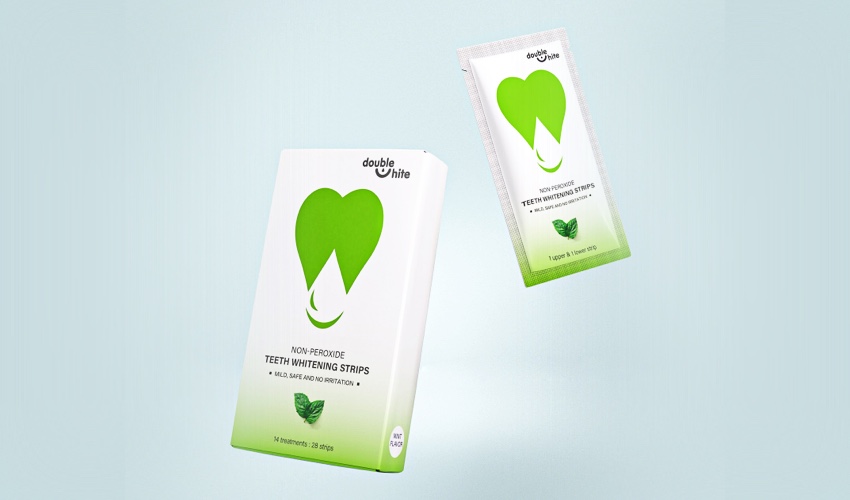
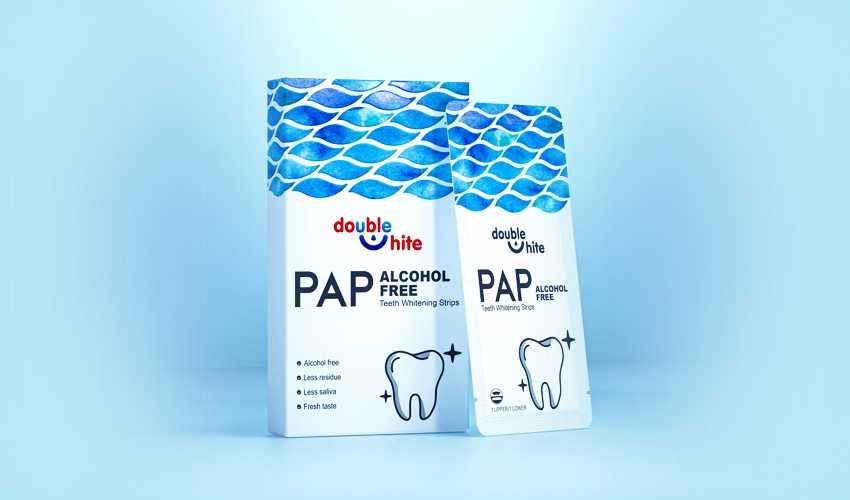
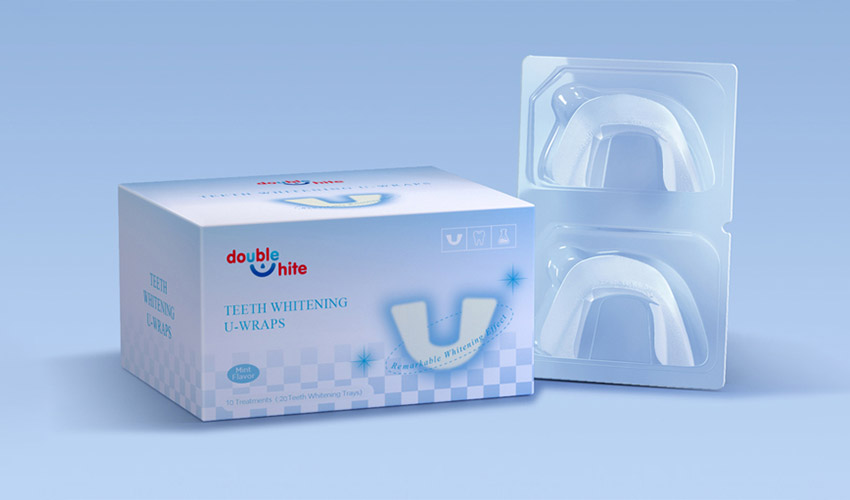
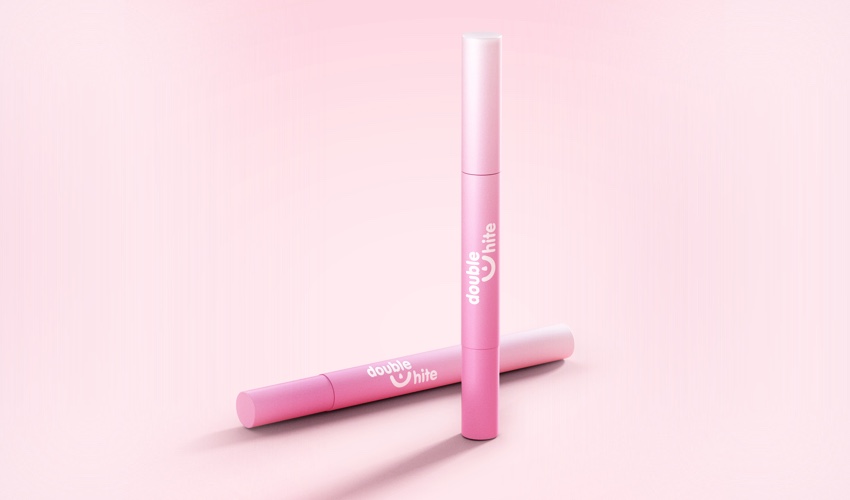
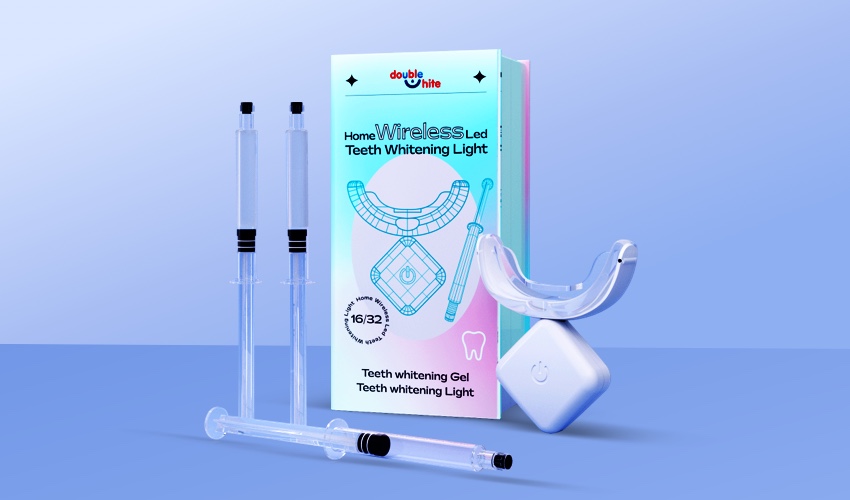
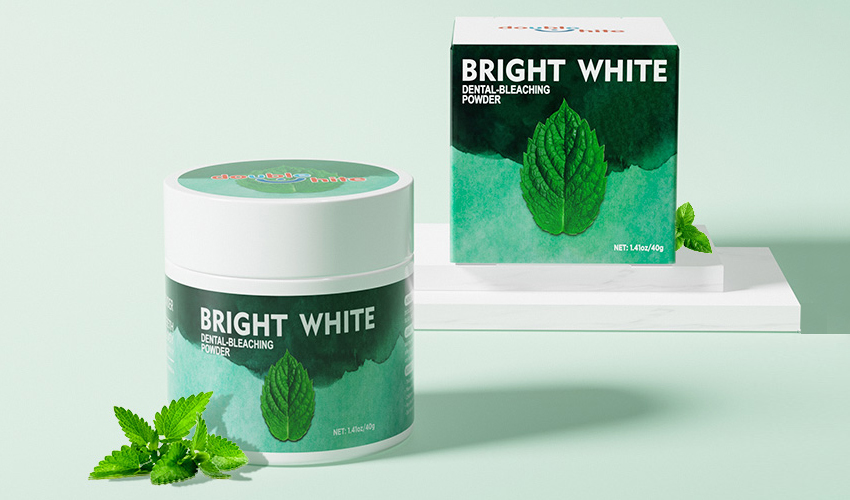






Whatsapp: +8615920313473
cndoublewhite
Doublewhite
doublewhitecn
cndoublewhite
cndoublewhite